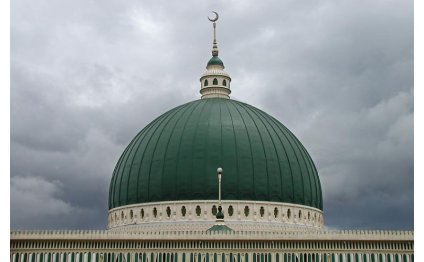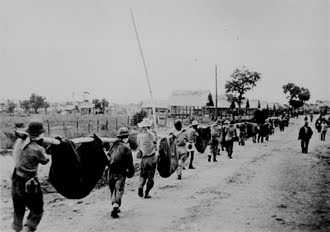
States in the Philippines
The United States and the Republic of the Philippines held the sixth Bilateral Strategic Dialogue (BSD) on March 17-18, 2016, in Washington, D.C. The annual dialogue supported and reinforced the Alliance across a broad range of shared values, interests, and priorities. The Dialogue was co-chaired by Assistant Secretary of State Daniel Russel and Assistant Secretary of Defense David Shear for the United States and Undersecretary of Foreign Affairs Evan P. Garcia and Undersecretary of National Defense Pio Lorenzo F. Batino for the Republic of the Philippines. Discussions reaffirmed shared commitment to strengthening the Alliance, in terms of ensuring both countries’ mutual defense and security, as well as jointly contributing to regional peace, stability, and economic prosperity.
On the occasion of the BSD, the two sides reaffirmed their commitment to the Mutual Defense Treaty of 1951, as articulated in the November 2011 Manila Declaration and more recently in the Enhanced Defense Cooperation Agreement (EDCA). They noted agreement on five EDCA Agreed Locations encompassing portions of the following facilities and areas: Antonio Bautista Air Base, Basa Air Base, Fort Magsaysay, Lumbia Air Base, and Mactan-Benito Ebuen Air Base, and discussed next steps for implementation of the EDCA. The two sides discussed proposals to support the United States’ efforts to help modernize the Armed Forces of the Philippines, develop capacity and capability for maritime security and domain awareness, and provide rapid humanitarian assistance. The Philippines welcomed the intent of the U.S. Department of Defense to propose to the U.S. Congress that a significant amount under the Southeast Asia Maritime Security Initiative be allocated in Fiscal Year 2016 to the Philippines for mutually-agreed projects that directly support the country’s maritime security priorities. They committed to continue developing, planning, and executing defense cooperation activities to reinforce their respective national defense capabilities and interoperability, in the areas of maritime security and domain awareness, enhanced joint activities, humanitarian and disaster response, counterterrorism, cybersecurity, and information sharing. Along this line, they also provided strategic policy guidance to the Mutual Defense Board-Security Engagement Board (MDB-SEB) to enhance cooperation in addressing traditional and non-traditional security challenges.
Both sides reiterated their commitment to peace, security, and stability in the region, unimpeded lawful commerce, and freedoms of navigation and overflight and other lawful uses of the sea as guaranteed under international law. Both sides expressed their firm opposition to the ongoing militarization of outposts in the South China Sea and discussed their common view that the installation of new military assets on the outposts escalates tensions. They discussed options to address further militarization and unilateral actions in the South China Sea. The delegations from the United States and the Philippines reaffirmed that countries should clarify maritime claims in the South China Sea in accordance with international law as reflected in the Law of the Sea Convention and peacefully resolve or manage disputes, including through the use of peaceful dispute settlement mechanisms, such as arbitration. Both sides restated their views that the ruling in the South China Sea case before the U.N. Law of the Sea Convention arbitral tribunal would be legally binding on both China and the Philippines. They reinforced the importance of close cooperation and consultation in international organizations and bodies that support a rules-based international order providing a framework for peaceful resolution of disputes.
The two sides decided to further deepen the already extensive U.S.-Philippine economic relationship based on a mutual commitment to free trade and economic opportunity. They welcomed the Trade & Investment Framework Agreement meeting on March 16 in Washington D.C., which advanced bilateral trade and investment issues between them and provided an opportunity to discuss the Philippines’ keen interest in the Trans-Pacific Partnership. They expressed their intention to renew the 2012 Agreement on Scientific and Technological Cooperation, which will help to ensure continued close collaboration in science and technology, energy security, health, climate change, and other areas. Both sides reaffirmed the importance of cooperating on ambitious action to combat climate change and to implement the Paris Agreement on sustainable fisheries management; on combating wildlife trafficking; and on environmental law enforcement capacity building.
The delegations from the United States and the Philippines noted that the first Millennium Challenge Corporation compact is on track to be successfully completed in May 2016, and reviewed progress of second compact development, as well as ongoing programs under the U.S. Agency for International Development that are building the conditions for stronger, more resilient and inclusive economic growth.
During the Dialogue, the two sides also discussed cooperative activities to support the rule of law, including law enforcement-related capacity building to assist the Philippines’ efforts to curb corruption, money laundering, trafficking in persons, terrorism, environmental crime, and cybercrime as just a few examples of extensive ongoing law enforcement cooperation. The U.S. side welcomed Philippine Senate ratification of the Hague Convention on the Civil Aspects of International Child Abduction and Philippine progress toward accession to the Convention.
Finally, the delegations from the United States and the Philippines underscored the strong personal and societal bonds, including a commitment to shared values and norms, which form the core of the relationship, and reaffirmed their commitment to continue to support and deepen people-to-people ties and other exchanges that enrich both countries.
RELATED VIDEO



Share this Post
Related posts
Attractions in the Philippines
As the national center for performing arts, the Cultural Center of the Philippines (CCP) has stood out for years as the truest…
Read MoreTop Travel destinations in the Philippines
The Philippines, home to more than 7, islands, is indeed packed full of natural wonders and beauty known throughout the…
Read More
 The Philippines Campaign (1941–1942) or the Battle of the Philippines was the invasion of the Philippines by Japan in 1941–1942 and the defense of the islands by Filipino and United States forces.
The Philippines Campaign (1941–1942) or the Battle of the Philippines was the invasion of the Philippines by Japan in 1941–1942 and the defense of the islands by Filipino and United States forces.









